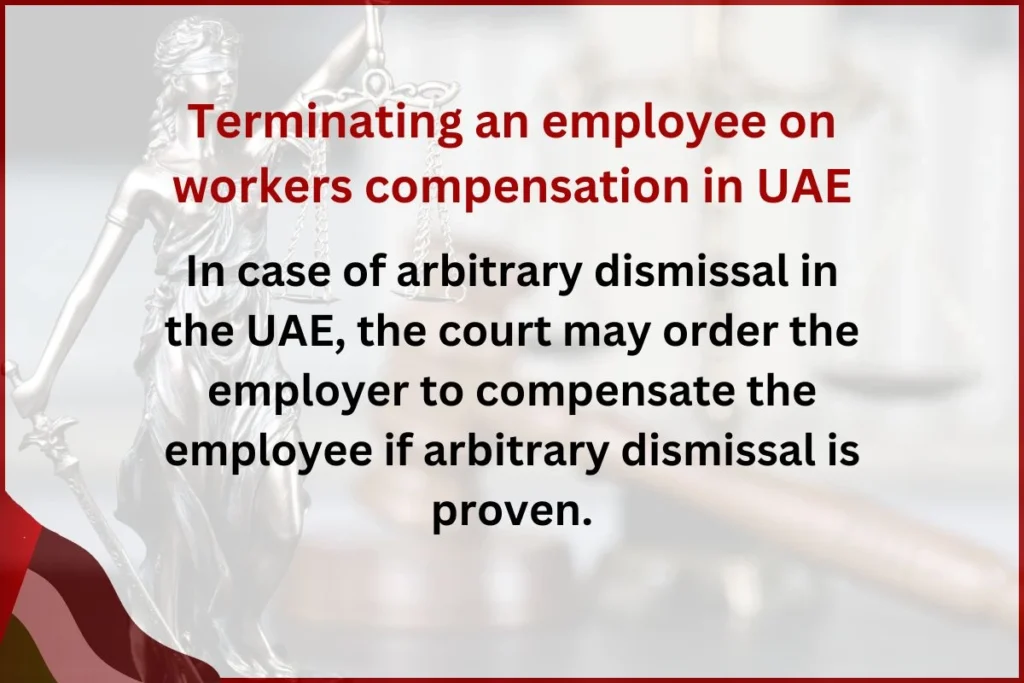This article will explore the process of terminating an employee on workers compensation in UAE, including the notice period requirements and other relevant provisions.
Contact the office of Al Mulla via Whatsapp. Click here. Or visit us at our law firms: Dubai. You can also call us on phone: 00971501961291.
Table of Contents
Terminating an employee on workers compensation in UAE.
The worker is entitled to their full wage as per the employment contract throughout the notice period, and any deviation from serving the notice period incurs a compensation allowance.
Notice period compensation.
The following provisions must be observed during the notice period:
- Full Wage Entitlement. The worker is entitled to receive their full wage per the employment contract for the notice period.
- Notice Period Allowance. If either party fails to serve the notice period, they must compensate the other party with a “notice period” allowance.
This allowance is equal to the worker’s wage for the entire notice period or proportionate to the remaining period.
The allowance calculation is based on the worker’s last received wage. - Unpaid Leave for Job Search. If the employer terminates the contract, the worker is entitled to one day of unpaid leave per week during the notice period to search for another job.
Arbitrary Dismissal workers compensation.

If arbitrary dismissal is proven, the court may order the employer to compensate the employee.
The amount of compensation will be determined based on factors such as the type of work, the extent of damage caused to the employee, and the duration of their employment.
The compensation cannot exceed the employee’s three-month wage, calculated based on their entitled last salary.
In addition to compensation, the employee can claim their gratuity, notice period dues, or any other unpaid dues from their employer.
FAQs About terminating an employee on workers compensation UAE.
Conclusion.
Terminating an employee on workers compensation in UAE involves following the guidelines outlined in the UAE Labor Law. The law outlines various situations for terminating employment contracts and the required notice periods.
Remember, the information provided in this article is for reference purposes only and should not be considered legal advice.
It is advisable to consult a qualified labour lawyer or the Ministry of Human Resources and Emiratisation for specific and up-to-date information regarding the termination of employment contracts in the UAE.
Office of Al Mulla. Whatsapp: Click here. Location: Dubai. Phone: 00971501961291.
We recommend you read about Termination Employment for Dishonesty in UAE Dubai and Labour Law for Termination of Employment. Also, learn about the Employee rights in termination in UAE Dubai and how to Sue for Wrongful Termination.
A legal consultant specializing in UAE labor law. He regularly publishes articles on the website and writes on various areas of UAE law, with a specific focus on labor law.
